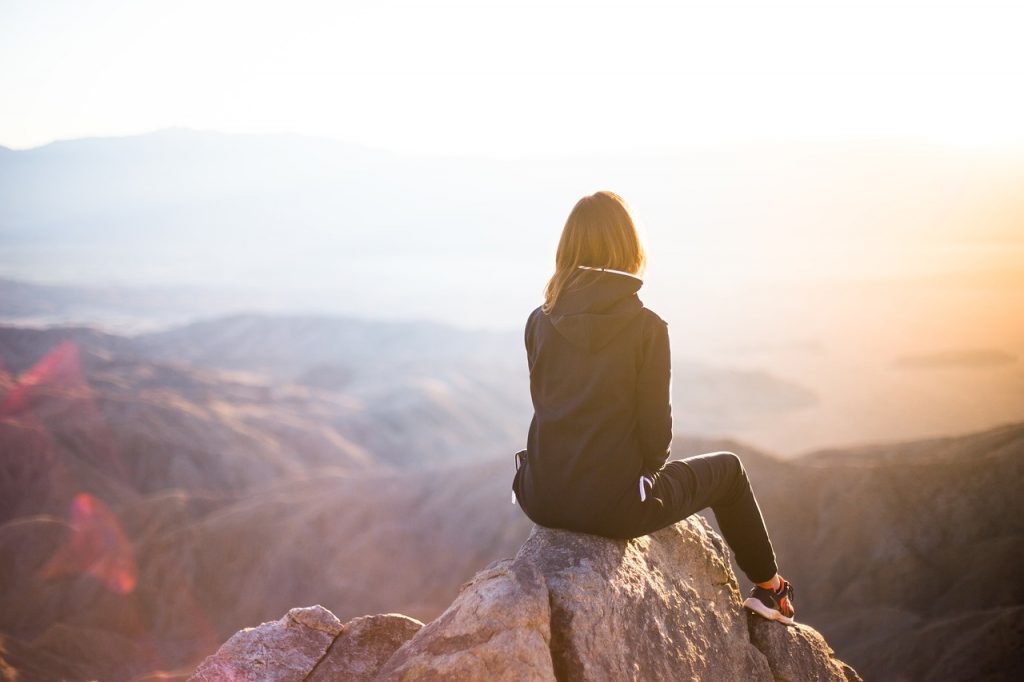
If you struggle with low self-esteem and confidence, being alone can be very frightening.
If you’re staying in a toxic relationship or marriage simply because you’re afraid of being alone, it’s probably because you’re looking to others to validate your self-worth.
Gaining validation from the people around you isn’t unusual, but if it’s the only way you can get a sense of self-worth about yourself, it’s problematic.
When spending periods of time alone means that you quickly lose confidence and self-esteem, you’re much more likely to seek a partner – any partner – to share your life with – and that individual may not be the right match for you.
It’s hard to imagine being happy when you’re alone, especially if you enjoy being social and around others. That fear of rejection and abandonment can be so great that you’ll put up with abuse and toxic behaviour just so you’re not alone.
Does that sound familiar?
Childhood abandonment issues may lead to fears of being alone
You may share some similarities with my former client:
Nicky was a confident and outgoing person around friends and easily fell into relationships – which quickly turned sour. Nicky would feel taken for granted, bullied by her partners and made to feel like she just wasn’t “good enough.”
Nicky learned that she got self-validation from the people around her – being alone made her feel insecure, rejected and worthless. Unfortunately, this meant that Nicky was drawn to men who thrived off the attention she would give them – but then would abuse her (emotionally or physically) when they felt they weren’t getting enough attention from her.
It’s not your fault if you’re afraid to be alone.
Our thought patterns and their resulting behaviours usually begin in our childhood, based on our experiences during that time and the lessons we learned from them.
How Our Past Experiences Affect Us
Nicky’s parents were successful doctors who worked long hours and would often come home tired and stressed. Although Nicky felt loved by her parents, most of her day-to-day care was provided by nannies and babysitters, some of whom stayed only for a few months at a time.
She felt her upbringing at home was “hit and miss” and as a result, she struggled to form attachments with those close to her, in case they disappeared.
Those feelings followed Nicky into her adult years and her relationships. She yearned to be close to someone who would stay with her forever, but the thought patterns from her past persisted: the longer she was in a happy relationship, the more insecure she felt about her partner disappearing and this would ultimately lead to the ending of the relationship.
It was a continuous cycle: each subsequent relationship was based on the need to feel less alone and less insecure. Her partners perceived this and used it to meet their own needs.
As a result, Nicky felt trapped in a cycle of needing to be in a relationship to feel happy but trapped with abusive partners who took advantage of her.
It doesn’t have to be this way.
Recognize That Any Emotional Abuse Is Not Your Fault
Although you may be drawn to abusers and narcissists to avoid being alone, any abuse that you suffer at their hands is not your fault. Abusers have their own thought patterns and behaviours and are likely to act that way with anyone they have a relationship with.
The first step to breaking the cycle of abusive relationships is to understand:
-You are going to be happier and healthier on your own than in repeating bad relationships.
When I worked with Nicky, I helped her recognize why she was so afraid of being alone and how she could find ways to enjoy her own company. Learning to find self-worth on your own terms is rewarding and a great way to establish new thought patterns that pave the way to happier, abuse-free relationships in the future.
Are you ready to escape the cycle of abusive relationships and emotional trauma?
As a child, you probably dreamed of falling in love and starting a family – culturally we’re led to believe it’s the ‘normal’ thing to do and being single is viewed as a “bad thing.”
But being single could be the better option. In fact, a psychologist found that single people may have more friends and bigger social networks than couples – and are often happier as a result.
In most cases, being alone isn’t the issue. It’s the feelings of abandonment, loneliness and fear of the future that being alone represents for many people that drive them to being in any relationship, regardless of how happy or healthy it is.
